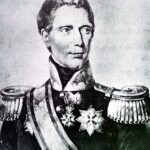MOHLOMI
- 3 Min Read
Mohlomi (died circa 1816), son of Monyane and chief of the Monaheng, is a central figure in the oral tradition of the present-day Lesotho, and is considered, through that tradition, to have had a substantial influence on Moshoeshoe, the architect of the Lesotho nation. Mohlomi is known, beyond his chiefly duties, for his wisdom, his diplomacy, his penchant for travel, and his skills as a doctor and rainmaker.
Mohlomi grew up along the Caledon River, and tradition suggests that during the time of his initiation there he had a vision in which, by various accounts, he was swept up to heaven and told by God to let love be his guide in ruling his people, relating to them as “men and brothers.” It has been suggested by several historians of the region that the Mohlomi tradition was refined after his death first by the French missionary Arbousset and later by D.F. Ellenberger.
The central theme of the tradition revolves around Mohlomi’s peculiar skill as a diplomat who extended his influence and attracted followers through his provision of justice, and generosity toward those around him. He was cited in the tradition particularly for his belief in the extension of justice to all people without regard for their economic standing in the community and for his antipathy to the use of charges of witchcraft as a means of doing injury to one’s enemies. Where other chiefs used charges of witchcraft to penalise subordinates and take their possessions, Mohlomi refused to entertain such charges among those under his leadership.
The tradition also suggests that Mohlomi was a wealthy man, a consequence of his prodigious skills as a doctor and rainmaker, utilising his wealth to enlarge his following at home and during his travels. Sanders cites Mohlomi as the first chief to utilise payment of bohali, or bridewealth, on behalf of his less fortunate retainers as a means of binding them to him.
Mohlomi’s travels were legendary in scope, and contemporary accounts suggest that he ranged throughout his region, extending his journeys as far as the edge of the Kalahari desert and the southern border of Zimbabwe. During these travels, Mohlomi is said to have put his medical skills to good use, reaping large numbers of cattle from his practise which he then applied to marry the daughters of the chiefs along the way.
He thus extended his influence while taking an estimated forty to fifty wives. Mohlomi is considered such an unusual figure largely because he was able to become a man of great influence, wealth, and respect without recourse to warfare or violence of any kind.
It is this man, with great standing in his community and beyond, who is said to have advised the young Moshoeshoe shortly after the latter’s marriage. Mohlomi purportedly passed to Moshoeshoe the wisdom of his own rule, admonishing him to lead with justice and patience and to avoid the use of violence to maintain his authority, opting rather for kindness and generosity. The tradition also notes that Mohlomi told Moshoeshoe that he would one day be the ruler of men and that Moshoeshoe took Mohlomi’s teachings to heart.
While it is impossible to separate fact from legend, the history of Moshoeshoe’s rule, exemplary in its use of diplomacy and generosity as a means of building a nation, hints at the possibility that Mohlomi was a man who lived a life proximate to his legend and that he did indeed influence Moshoeshoe.
AGGREY M. MBERE



